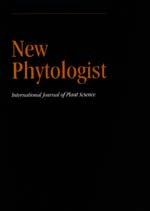Air today – gone tomorrow?
Published online by Cambridge University Press: 01 May 1998
Abstract
This paper discusses ways in which plant metabolism, development and survival influence, and are influenced by, gaseous pollutants. When amino acids are used as carbon and energy sources by plants and other organisms, reduced inorganic nitrogen is released, with wide-ranging implications for the N cycle. Plants can detect the presence and amounts of deposited N and ozone in the environment, not only by direct metabolic incorporation but probably also via distinct signalling systems. Low-nutrient communities and ecosystems, such as temperate conifer forest, are often protected against N overnutrition by adaptations that insulate plant metabolism and growth from the fertilizing effects of deposited pollutant N. Changes in ecosystem balance and biodiversity are not related in any simple way to differential injury responses of constituent species. The question of what happens when a particular component of a changing plant community fails is considered in terms of the relationship between phases of development and the turnover of tissues and organisms.
- Type
- Research Article
- Information
- Copyright
- © Trustees of New Phytologist 1998
Footnotes
- 1
- Cited by




